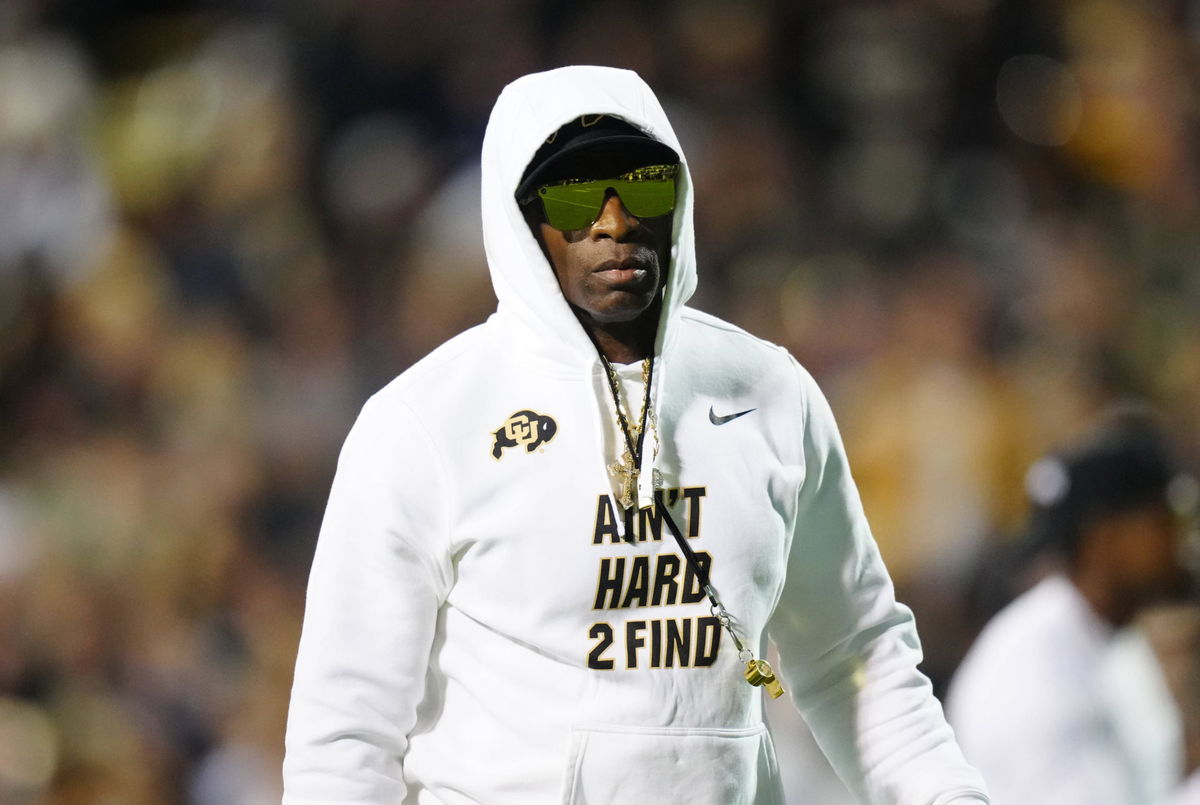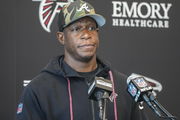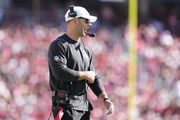
Imago
NCAA, College League, USA Football: Colorado State at Colorado Sep 16, 2023 Boulder, Colorado, USA Colorado Buffaloes head coach Deion Sanders before the game against the Colorado State Rams at Folsom Field. Boulder Folsom Field Colorado USA, EDITORIAL USE ONLY PUBLICATIONxINxGERxSUIxAUTxONLY Copyright: xRonxChenoyx 20230916_jcd_ac4_0132

Imago
NCAA, College League, USA Football: Colorado State at Colorado Sep 16, 2023 Boulder, Colorado, USA Colorado Buffaloes head coach Deion Sanders before the game against the Colorado State Rams at Folsom Field. Boulder Folsom Field Colorado USA, EDITORIAL USE ONLY PUBLICATIONxINxGERxSUIxAUTxONLY Copyright: xRonxChenoyx 20230916_jcd_ac4_0132
As the Colorado football program navigates through a transformative period, the horizon of possibilities has begun to undergo a discernible shift. Deion Sanders stands as a contemplative witness to the erosion of his ambitious plans, replaced by an atmosphere tinged with despair and disintegration. This evolving narrative extends beyond the team’s on-field performance, encapsulating the intricate process of rebuilding and reshaping the very foundations of the Colorado program.
Watch What’s Trending Now!
Was the “Miracle in Boulder” really a facade?
Tank Johnson, a seasoned six-year NFL veteran and proud alum of the University of Washington, makes a guest appearance on the “THE COACH JB SHOW WITH BIG SMITTY.” In this insightful discussion, he delves into his perspective on why this juncture signals the start of a decline for Colorado Football. Furthermore, Johnson offers his analysis of the challenges Coach Prime is currently grappling with.
ADVERTISEMENT
In retrospect, the overwhelming support for Dion Sanders may have inadvertently shielded him from constructive critique, hindering the development of his coaching acumen. Positioned within the grand scheme of coaches, Sanders, despite his celebrated career as a player, stands as a relatively young and inexperienced figure in the coaching realm. “He doesn’t really have that like top tier experience,” opines Johnson. This lack of top-tier experience became increasingly evident as he grappled with the complexities of leading an entire team and program.
ADVERTISEMENT
It seemed as though Sanders opted for a broad-strokes approach, casting a blanket over his entire team and program. What emerged from this approach was a “lack of nuance,” a subtlety that’s often required in navigating the intricate dynamics of a football program. While his intentions to establish a unified vision were clear, the absence of nuanced communication may have contributed to a disconnect between his overarching philosophy and the day-to-day realities of coaching.
ADVERTISEMENT
The repercussions of such an approach became apparent in the eyes of recruits. When prospects are exposed to a coach’s expressions, the team’s morale, and the body language on and off the field, their perceptions play a pivotal role. The nuanced intricacies of the coaching environment, both in-game and on the sideline, significantly influence the decision-making process for players and their parents.
Top Stories
Falcons Owner Arthur Blank Makes Double Firing Decision as Locker Room Stands Against Raheem Morris’ Exit

Cowboys Star Faces NFL Discipline For Jaxson Dart Incident Against Giants

49ers’ Deommodore Lenoir Goes on Expletive-Laced Rant Against Troy Aikman After Criticism From Cowboys Legend

Kirk Cousins Announces Return Stance With Falcons After Atlanta’s Four-Game Win Streak

Nine NFL Coaches Who Could Receive Black Friday Pink Slips: Predictions on Pete Carroll, Todd Bowles, Matt LaFleur & More

Read More: 2 Years After Deion Sanders Being Robbed, Colorado Players Suffered Similar Horrible Fate at UCLA
As the atmosphere away from the field becomes perceptible, the body language on the sidelines becomes a critical factor. Players and their parents keenly observe these cues, determining whether the environment fosters growth and development. It’s in these moments that the realization sets in – “players and the parents are like this is not an environment that I feel that I can grow in this is an environment.”
ADVERTISEMENT
In essence, the call for nuance extends beyond the game itself. It’s a plea for a more subtle, perceptive approach to coaching philosophy and communication, recognizing the multifaceted nature of nurturing a successful football program. The path to sustained success often requires a delicate balance between overarching principles and the nuanced realities of day-to-day coaching.
Despite the formidable task at hand, Prime Time has declared a commitment to the development of his star quarterback sons, Shedeur and Shilo. A notable proclamation echoes through the football landscape, as both sons are set to abstain from entering the NFL Draft in 2024. This strategic decision affords the coach ample time to fortify and fortify the visibly beleaguered football program at Boulder, aligning the stars for a potential resurgence.
Watch This Story: Coach Prime Deion Sanders’s coaching conundrum deepens with Colorado football quality control analysts’ promotion.
ADVERTISEMENT
ADVERTISEMENT
ADVERTISEMENT
ADVERTISEMENT

